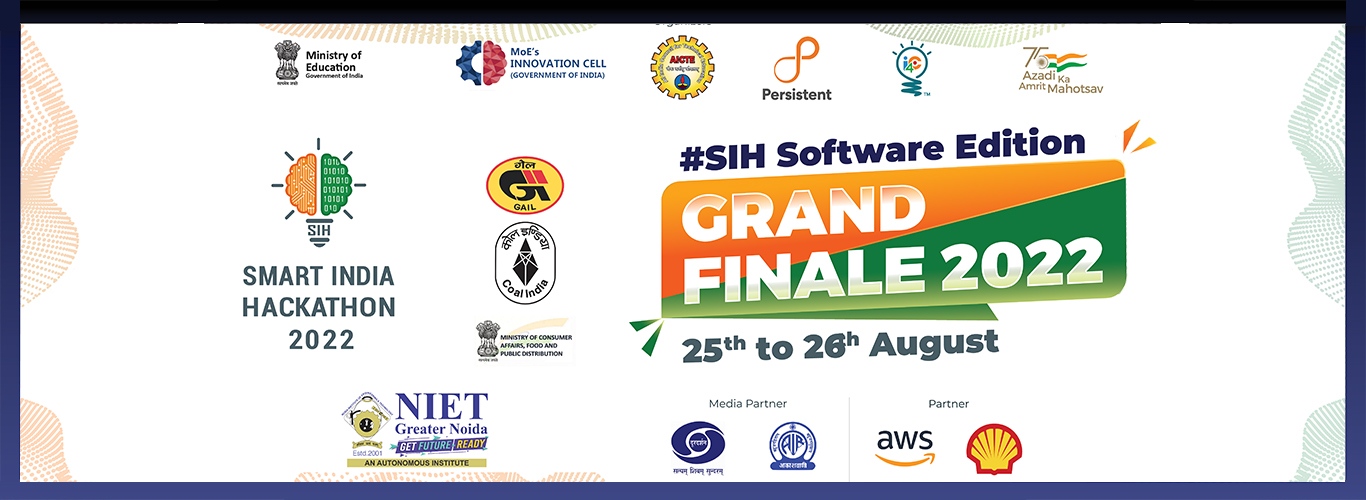With learning playing a central role in the sustainability of lives, the Indian education sector has come out with rich & innovative methods of teaching. And with continuous efforts by the Indian Government, the country has strived hard to improve its overall literacy rate, number of schools, colleges, technical institutions, and universities.
In recent times, Uttar Pradesh is one of the fastest states emerging as an education hub of the country. The education system of Uttar Pradesh has bolstered with new education policies and initiatives that have given rise to employment prospects. The state has become a hub of premier universities and notable colleges to nurture the young talents of the Nation. Amongst all, one such renowned Institute is the Noida Institute of Engineering and Technology (NIET).
Overview & Legacy
NIET, Greater Noida is the1st Private institute in Uttar Pradesh to get Autonomous Status by UGC.Situated in the heart of India’s hub of global MNCs, Noida Institute of Engineering and Technology (NIET) is one of the most premier Engineering and Management Institutes in today’s era. The Institute was established by the City Educational & Social Welfare Society of Meerut, with a vision to impart value-driven education of global dimensions.
Noida Institute of Engineering and Technology, a self-financed institute that is recognized by Govt. Educational Authorities such as the National Board of Accreditation (NBA), National Assessment and Accreditation Council (NAAC), Atal Ranking of Institutions on Innovation Achievements (ARIIA), and MHRD, National Institute Ranking Framework (NIRF). With a highly valuable degree of innovation, credibility, integrity, and ethical standards, the Institute has pledged to deliver high-quality education to students from all corners of the country.
The “A” Grade institute aims at recognizing, respecting, and nurturing the creative potential of each student. Celebrating over 21 years of excellence, the world-class Institute has been providing academic excellence in the digital arena to deliver socially responsible professionals in the corporate sector.
In this blog, we will be highlighting the top 10 reasons behind choosing the NIET Institute.
Courses Offered at NIET Institute, Greater Noida
Since its inception, NIET is focusing on the holistic development of the youth. The Institute follows a distinctive culture and unique educational system. A student-centric environment is encouraged at the NIET campus, where students get opportunities to explore existing technical knowledge, gain new learning at the leading edges of technology advancement and develop a set of skills that will equip them to face real-time challenges.
To help numerous aspirants achieve their career goals, NIET is offering knowledge and training in multiple domains:
- Engineering:
Under the umbrella of Engineering, NIET is offering both graduate and postgraduate courses.
The courses offered at the graduation level includes:
Bachelor of Technology (B. Tech)
For B. Tech, NIET is one of the best educational hubs to study. With rapid globalization and constant technological advancement, the Department of Computer Science and Engineering has been focusing on cutting edge research to impart state-of-the-art education. The department offers the following specialization:
- Computer Science and Engineering (CSE)
- Information Technology
- Computer Science and Engineering (Computer Science and Business System (CSBS))
- Computer Science and Engineering (Data Science(DS))
- Computer Science and Engineering (Internet of Things (IoT))
- Computer Science and Engineering (Artificial Intelligence and Machine Learning (AIML))
- Computer Science and Engineering (Artificial Intelligence (AI))
- Computer Science
- Electronics and Computer Engineering (ECE)
- Mechanical Engineering
- Biotechnology
Master of Technology (M. Tech)
The courses offered at the post-graduation level includes:
- Computer Science and Engineering (CSE)
- Mechanical Engineering (ME)
- Artificial Intelligence (AI)
- VLSI Design
- Biotechnology
- Pharmacy:
The Institute has achieved All India 49th rank in Pharmacy. The courses offered in the branch of Pharmacy are tailor-made to train the students to play a significant role in allied pharma and healthcare communities assist the pharmaceutical industry at various levels. The undergraduate and postgraduate courses are approved by PCI and accredited by NBA.
- D. Pharm
- B. Pharm
- M. Pharm – Pharmaceutics | Pharmacology | Pharmaceutical Chemistry
- Management:
NIET’s management candidates face the diligence of a business and technology education that combines modern managerial, strategic planning, software, and technical skills. The department of computer and technology, along with management, focuses on concept-based subjects and practical knowledge-oriented training that supplement high-quality teaching to nurture the brightest minds into the world of business.
List of courses in the Management Department:
- Post Graduate Diploma in Management (PGDM)
- Master of Business Administration (MBA)
- Master of Computer Application (MCA)
Why Choose NIET Institute, Greater Noida for Successful Career Path?
NIET has been ableto provide excellent quality of education and training to young minds aspiring to become engineers, managers, pharmacists, and technocrats. To achieve this goal of ensuring a healthy learning atmosphere, we have established a world-class infrastructure and invited highly talented and qualified faculty to groom the finest minds of the country.
“NIET has always stood for quality and excellence and consistently makes efforts to upgrade and improve ourselves.” Let’s find out how?
Salient features of the NIET Institute, Greater Noida:
- State-of-the-art Infrastructure-
NIET Institute has a sprawling lush green area of 13.90 acres and an inspiring ambience all around. The campus has been established with all the world-class facilities to stand and shine like a star among the esteemed education institutes. It provides every single amenity that a student dream about:
- Lecture rooms are well-equipped with projectors, computers, high-tech sound systems, OHPs, and audio-visual tools
- A large number of lecture theatres
- Well-stocked library
- Audio-visual Aids
- Wi-Fi-enabled campus
- Spacious auditorium & seminar halls
- Etiquette Lab
- Computer labs instated with the latest software
- Modern Canteen & Cafeteria
- Yoga & Recreational rooms
- Dedicated 18000 sq. ft area with advanced corporate facilities
- ATM, Medical and Transport assistance
- 24*7 CCTV surveillance and more.
- Reputed and Experienced Faculty
What makes NIET the strongest of all? “The Intellectual Faculty Foundation”. The faculty members are dedicated to an integrated curriculum with a global focus, team teaching & leadership thoughts. The faculty shares a vibrant & interactive bond with the students. The out-of-the-box inspiration and intellect help to create a healthy learning environment among the students.
What makes our faculty team the Best?
- 456 seasoned mentors
- Every faculty being specialized in a specific domain
- 63+ PhD holders
- 30% of the staff with industry experience
- Emphasis on critical thinking & leadership
- Top Ranking
What makes an institute or university add to its reputation? It’s the top-ranking and the remarkable awards. Let’s have a look at the list of rankings achieved by NIET:
NIRF
- All India 49th rank in Pharmacy by NIRF 2020
- 201-205 Rank-Band Engineering by NIRF 2020
NBA
- NIET all the course are accredited by NBA
- CSE | ECE | ME | BT | IT | MCA | B. PHARM | MBA
ARIIA
- Ranked among Top 50 Private Institutions in India by ARIIA 2020
NAAC
- Accredited as “GRADE A” 3.23 | HIGHEST IN UP
QS I-Gauge
- Awarded with DIAMOND Subject Rating in Engineering 2021 by QS IGAUGE
- Awarded with GOLD by QS I-Gauge Rating for Indian colleges 2020
- Excellent Placement Record
Year after year, NIET has been measuring notable corporate impressions. Till now the campus has witnessed the following placement stats:
- 1240+ companies visited for Campus Placement
- 2100+ Record-Breaking Placements Offered
Now, you must be pondering about the Placement Packages. The highest placement package of INR 30 LPA was bagged by one of our brilliant students at Amazon India. And the lowest placement package so far was around INR. 6.85 LPA offered to more than 172 qualified students.
- Industry Oriented Teaching
Courses at NIET are outlined to follow an activity-based learning method. The curriculums of the courses are aligned in such a way that integrates the theoretical and practical aspects of learning. With hands-on activity guided by the faculty members, students are gaining an understanding to deal with real-time challenges.
“AavishkarBhoomi” is an initiative taken by the Institute to encourage students to undertake problem-resolving projects to uplift the technology sector. Further, they potentially support projects that invite high social and commercial impact. Therefore, NIET is the only institute that offers funds for student projects to encourage innovation.
Pyramid Finishing School (PFS) for 360-degree development of the students. To bridge this gap, NIET has come up with PFS. Students are first evaluated on their in-built skills, and later a thorough training is organized accordingly. Once the training and workshops are over, the individual student is given opportunities to appear for the recruitment drives.
At NIET, students learn in a real-world environment, work together as a team, brainstorm innovative experiments, share strategies about the analysis and interpret solutions.
- Hi-tech Campus
The campus is WIFI enabled, which gives access to boundless learning. Classrooms have comfortably designed furniture, uninterrupted Wi-Fi connectivity, climate-controlling systems, appealing lighting and visually pleasing interiors that make the environment of the classroom more favourable towards learning.
To add on, NIET offers the following amenities:
- Wi-Fi enabled campus with 500 Mbps speed
- 16 laboratories with state-of-art computing facilities
- Advanced computer technologies and software
- State-of-the-art innovation labs
- Personality Development
For enhancement of skills & personality, the PFS plays a vital role. The 360-degree development strategy grooms the students to be job-ready. The Institute organizes several Alumni Meet, Leadership Talks and International conferences that help the students to develop a spark within them. Besides, exciting fests and workshops are coordinated on the campus to explore the hidden talents of the students.
- Teaching Methodology
Due to excellent teaching pedagogy, NIET is developing as the Center of Excellence in imparting technical and professional education. The teaching pattern is based on the activity-based learning method. Students are groomed under the best faculty members who believe in experimenting with real-life situations and find action-driven solutions. NIET groom students via 3 different programs:
- Campus-Wide Quality Improvement Program (CWQIP)
- Total Student Development Program (TSDP)
- Non-Performing Students Development Program (NPSDP)
- Residential Accommodation – Hostel
At NIET, students can opt to be day scholar or a hosteler. However, we believe that residing in the Institute campus motivates self-reliance and boosts the ability to adapt.
The campus offers a tranquillity, sporty and encouraging environment. There are huge spaces for study, fitness, and social interaction.
The NIET campus also serves excellent residential accommodations that crafted according to international standards. Following are the highlights of the residential facilities:
- 3 hostels offer well ventilated and comfortable rooms with separate hostels for girls andboys
- Rooms are available on single/double/multi-sharing
- Common recreational zones for indoor & outdoor games
- In-house gymnasium
- Modern cafeteria, where the kitchen and airy terrace is equipped to serve hundreds of students
- WIFI support
- RO purified water
- Library
- Clean & Hygienic ambience in the mess.
- Automatic dishwasher and roti maker
- Stringent, round-the-clock security and doctor arrangements
- Innovation labs & Star Tie-ups
To inspire smooth development, NIET has introduced active laboratories that support flexible frameworks and hold dynamic student workgroups, research zones, and equipment in unlimited arrangements. Ultra-modern innovation labs have been established to provide hands-on experience of evolving technologies. The Laboratory Program lays the foundation to develop the programming skills of engineering students. Our ultimate aim is to provide tailored development programmers using different system circumstances for the students. Therefore, we have introduced laboratories that are the ideal destinations for active learning.
NIET has tied-up with many MNCs across the globe and has 24+ well established labs. Innovation Labs are as follow : Apple University Program Partner, Cisco Networking Academy, PTC Centre of Excellence, Amazon WebServices, Pearson Testing Centre, Oracle Workforce Development Program, Dell EMC Academy, Delta Centre of Robotics, IBM Watson Iot Lab, IntelAI Academy Palo Alto Academy, PegaCOE ,Salesforce Academy Automation Anywhere, UiPath Academic Alliance, BMW Skill Next Program, Mercedes-Benz ADAM Program, KPITSparkle, Cambridge English Language, Assessment Authorized Centre , WiproGE,I nd-EuroSync, Germany(for Advanced Robotics Control), College of Engineering, Pune ARC Advanced Robotic Control Lab (Automation), ICICI.
- Intensive Industry Interaction
NIET has been assisting students in treasuring valuable knowledge and advancement of skills through:
- Industry Exposure
- Alumni Meet
- Leadership Talk
- Ideation Camp
- Industry Meets with Top-notch companies
- NIET Webinars, Technology weeks
- Workshop on Personality Development
- All India Student Championship and many more interactive events.
- Extracurricular Activities – Sport, Events, Fest, Tour, and Others
NIET invites a wave of creative extra-curricular activities every year. The journey of fun & learn includes:
- Grand Placement Felicitation
- National & International Industrial Visits
- Antardhwani
- Nirman
- Young Star Achievement Award (with Jagran Group)
- AKTU Technical, Literary & Management Fest
- Souvenir (International Conference)
- Smart India Hackathon
- India Pitching Competition
- Multiple ISR activities
- Carrom Tournament
- Volleyball Match
- Ebullience- Sports Event
- Parent-Teacher Meet
- Musical Event
- Village immersion visits and more.
And, we come to the end of flipping the vibrant and informative 10 pages of an esteemed Institute in Greater Noida that helps you “Learn through Academics & beyond. Build Strong virtues. Think independently. Get placed.”
Want to experience the Best of the Best?
Come and join UP’s 1st Private Institute that has been recognized by 4 Government Organizations.
Be a NIETian today!
Feel free to contact us for any course or admission related query.
Also Read About:
Top Private B.Tech Colleges in Greater Noida










